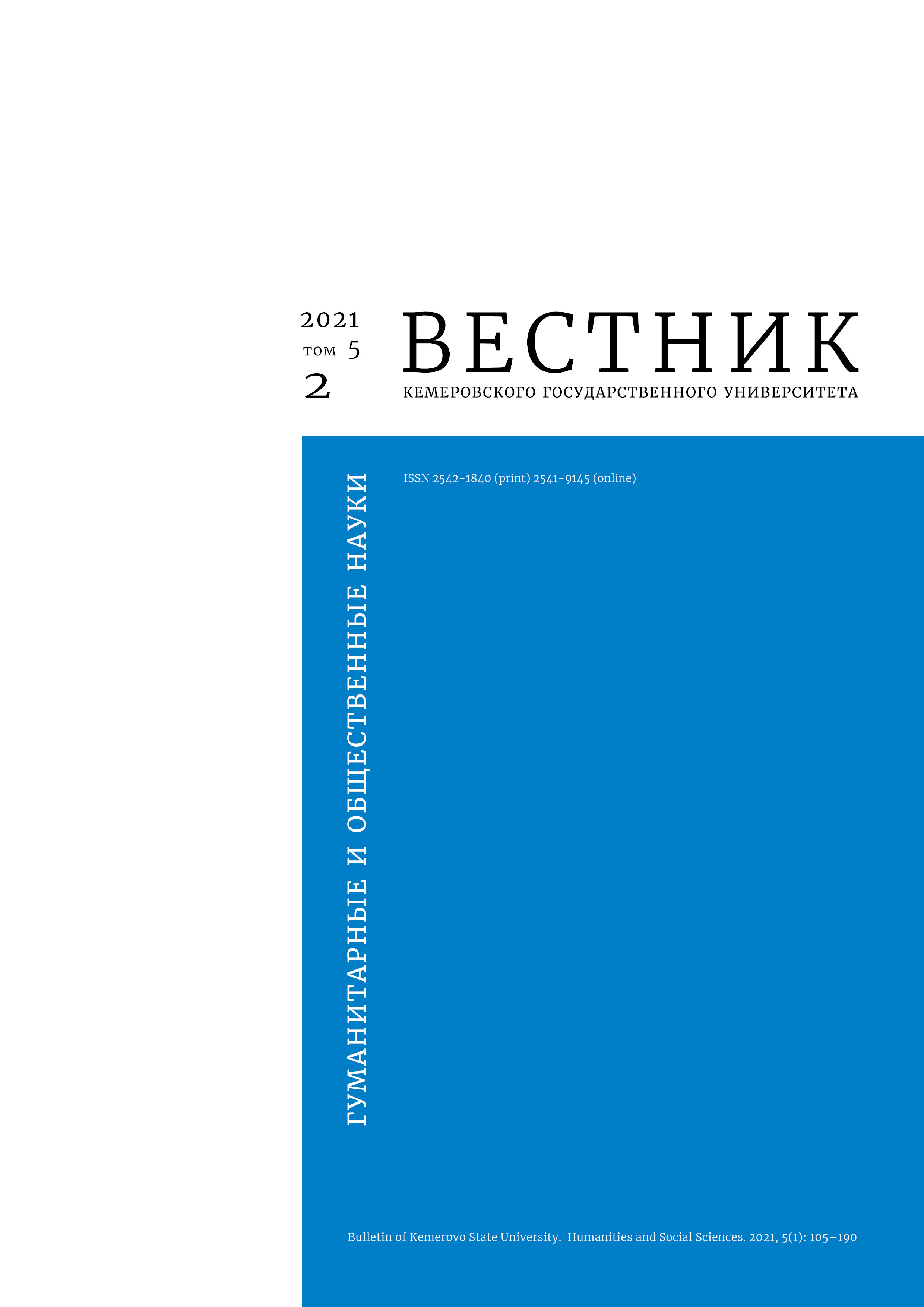Staropesterevo, Kemerovo, Russian Federation
Kemerovo, Russian Federation
Kemerovo, Russian Federation
he concept of life-long education and the Federal State Educational Standard for General Education presupposes teaching technologies that form a positive attitude to a safe and healthy lifestyle in teenagers. The cognitive and social tasks that teenagers have to face grow more and more complex, which means that class environment should develop their coping potential and healthy lifestyle habits. The article features a pedagogical model for improving the health-saving and coping potential of adolescents in class. The model includes functional components that consist of organizational and pedagogical conditions aimed at solving learning, developmental, educational, and social tasks in class and during extracurricular activities. Monitoring proved to be the main organizational and pedagogical condition for improving the potential of adolescents in adaptation and healthy lifestyle habits. Monitoring includes three main stages: analytical, technological, and corrective. The research involved traditional and modified criteria of the health-saving and coping potential. The experiment proved the effectiveness of the new model.
organizational and pedagogical conditions, analytical monitoring, technological monitoring, corrective of monitoring, life-long education, health, coping
1. Krasnoshlykova O. G., Vasilyeva T. V., Schaefer I. V. Regional system of information support of quality management processes of education. Otechestvennaya i zarubezhnaya pedagogika, 2018, 2(2): 55-66. (In Russ.)
2. Molchanov S. G., Gostev A. G. The concept of "Educational program" in the law of the Russian Federation "On Education". Obrazovanie, 1998, (4): 32-49. (In Russ.)
3. Potashnik M. M. Innovative schools of Russia: formation and development. Moscow: Novaia shk., 1996, 317. (In Russ.)
4. Korolev M. F. Guarantees of high-quality professional education. Mechanisms of ensuring guarantees of the quality of professional education, ed. Korolev M. F. Moscow: RAGS, 2008, 63-68. (In Russ.)
5. Bystrushkin S. K., Aizman R. I. Adaptive capabilities of primary school students in normal and impaired intellectual development in the conditions of psychoemotional impact. Siberian pedagogical journal, 2007, (2): 218-224. (In Russ.)
6. Kazin E. M., Varich L. A., Tarasova O. L., Chetverik O. N., Koshko N. N., Arlasheva L. V., Nemolochnaya N. V. Comprehensive psycho-physiological approach to the assessment of adaptive capacity of teenage schoolchildren with different types of vegetative regulation. Vestnik Kemerovskogo gosudarstvennogo universiteta, 2020, 22(2): 444-454. (In Russ.) DOI:https://doi.org/10.21603/2078-8975-2020-22-2-444-454
7. Maklakov A. G. The personal adaptive potential: its mobilization and prognostication in extreme conditions. Psihologicheskij zhurnal, 2001, 22(1): 16-24. (In Russ.)
8. Leontiev D. A. Personality personality: personality potential as a basis of self-determination. Uchenye zapiski Kafedry obshchei psikhologii MGU im. M. V. Lomonosova, 2002, iss. 1, 56-65. (In Russ.)
9. Kazin E. M., Abaskalova N. P., Koshko N. N., Shinkarenko A. S., Averyanova N. V., Verzhizkaya E. N. Formation of safety and healthy lifestyle in the educational environment. Professional Education in Russia and Abroad, 2014, (1): 50-55. (In Russ.)
10. Aizman R. I. Health and safety of participants of educational process is a criterion of health-saving activity efficacy at the educational system. Otechestvennaya i zarubezhnaya pedagogika, 2015, (5): 72-82. (In Russ.)
11. Gatalskaia G. V., Zhuravleva A. E. Development of a conscious attitude to health in youth. Psihologicheskij zhurnal, 2008, (2): 52-59. (In Russ.)
12. Safronova M. V., Grebennikova I. N., Safronov I. D., Salimzyanov R. R. The influence of sport on psychological well-being and mental health of students of different ages of students. Siberian pedagogical journal, 2019, (6): 154-162. (In Russ.) DOI:https://doi.org/10.15293/1813-4718.1906.14
13. Abaskalova N. P., Zverkova A. Yu. Contemporary technologies of developing a program of health in the educational organization. Research result: Pedagogy and psychology of education, 2015, 1(2): 42-47. (In Russ.)
14. Abaskalova N. P., Zverkova A. Yu. Scientific survey: systems approach in pedagogy of health. Nauchnoe obozrenie. Pedagogicheskie nauki, 2016, (2): 5-24. (In Russ.)
15. Kazin E. M., Krasnoshlykova O. G., Avtushenko N. V., Ivanova O. G., Laskozhevskaya E. V. Organizational and pedagogical conditions for actualizing the health-saving and adaptive potential of primary school children. Professional Education in Russia and Abroad, 2020, (2): 75-83. (In Russ.)
16. Usenko A. B., Kuzmina K. A. Peculiarities of voluntary self-regulation in junior adolescents with different types of autonomic nervous system response. Psikhologicheskie issledovaniia, 2012, 5(24). Available at: http://www.psystudy.ru/index.php/num/2012v5n24/706-usenko24.html (accessed 24 Mar 2021). (In Russ.)
17. Feldstein D. I. Social development in the space-time of childhood. Moscow: MPSI; Flinta, 1997, 158. (In Russ.)
18. Kirichenko V. V. Optimization of health protection in the educational training process in sports schools for children and youth. Vestnik Kemerovskogo gosudarstvennogo universiteta, 2013, (3-1): 75-79. (In Russ.)
19. Galynskaia E. N. Formation of the foundations of the culture of health of schoolchildren in institutions of additional education of children. Cand. Ped. Sci. Diss. Abstr. Kemerovo, 2015, 24. (In Russ.)
20. Shinkarenko A. S. Formation of a safe and healthy lifestyle of schoolchildren at the present stage of society development. Cand. Ped. Sci. Diss. Kemerovo, 2015, 205. (In Russ.)
21. Chetverik O. N. Features of the formation of the psychophysiological adaptive potential of adolescents in various modes of educational activity. Cand. Biol. Sci. Diss. Abstr. Kemerovo, 2018, 20. (In Russ.)
22. Zvorykin V. P. Morphofunctional foundations of individuality and human spirituality. Usp. fiziol. nauk, 1992, 23(3): 107-124. (In Russ.)
23. Ivanova I. V. Socialization of youth in the context of information preferences. Psikhologicheskie issledovaniia, 2018, 11(61). Available at: http://psystudy.ru/index.php/num/2018v11n61/1626-ivanova61.html (accessed 24 Mar 2021). (In Russ.)


















